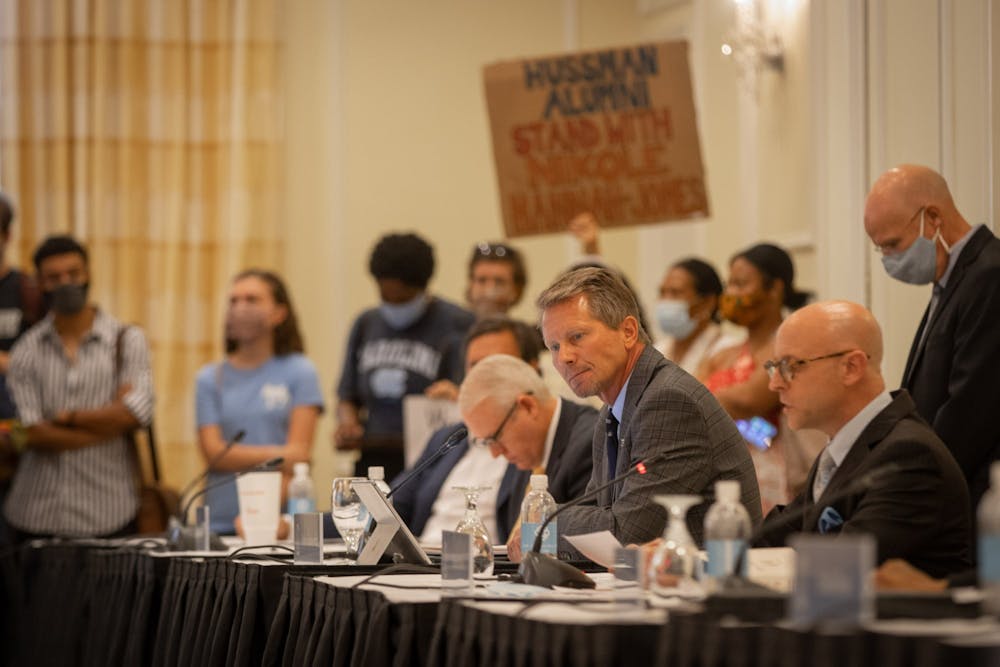The link between politics and higher education is hard to ignore. Campus life — in and outside of the classroom — is shrouded with rigorous debate over ongoing social and political issues and how these issues touch the lives of students.
By its very nature, academia goes hand in hand with politics. Students are trained in critical thinking and analysis and practice approaching complex topics with nuance and a widened perspective. We are bred to engage in a political world.
But student involvement in politics does not always mirror that of their universities, creating a stark duality of political ideologies in higher education: overwhelmingly progressive student bodies and the conservative, elite institutions they belong to.
At their core, colleges and universities were built into — and intended to perpetuate — systems of oppression. History shows us that higher education was created to serve and insulate white and wealthy men from the rest of society. Many academics point to Harvard University as an example, whose first graduating class consisted of nine white, Christian men, ranked by their familial status in society rather than their academic performance.
For Harvard and the universities that followed, access to these institutions was severely and intentionally limited. In "Reflections on Elite Education: In a just world, would the college I teach at exist?" Swarthmore College professor Jonny Thakkar paints a similar picture of elitism at both Swarthmore and Oxford. Thakkar recognizes that the goal of higher education is serving a privileged elite class of students, and that faculty have no choice but to remain complicit as institutional inequities unravel.
“You either play the hand you’re dealt or you quit. If you do stay, then you have to acknowledge that the sociological function of elite colleges in nonideal America will always be to produce an unfairly privileged elite,” he wrote in the Chronicle of Higher Education.
However, discussions about politics on college campuses today typically exist in the form of complaints about liberalism among students. In the podcast "You’re Wrong About," authors Michael Hobbes and Sarah Marshall debunk the idea of “political correctness” as it arose on elite college campuses.
They use the term “moral panic” to describe worries about students and professors being the subjects of liberal or Marxist indoctrination in the 1980s. By describing these worries as a moral panic, Hobbes and Marshall point out that there is no longstanding, sustained evidence of higher education being “too liberal” — only anecdotal evidence that has consumed America’s image of college campuses as more radical than reality would suggest.
Concerns over liberalism among students eventually evolved into concerns over higher education being overcome by far-left ideologies — although we know this to be far from the truth.



